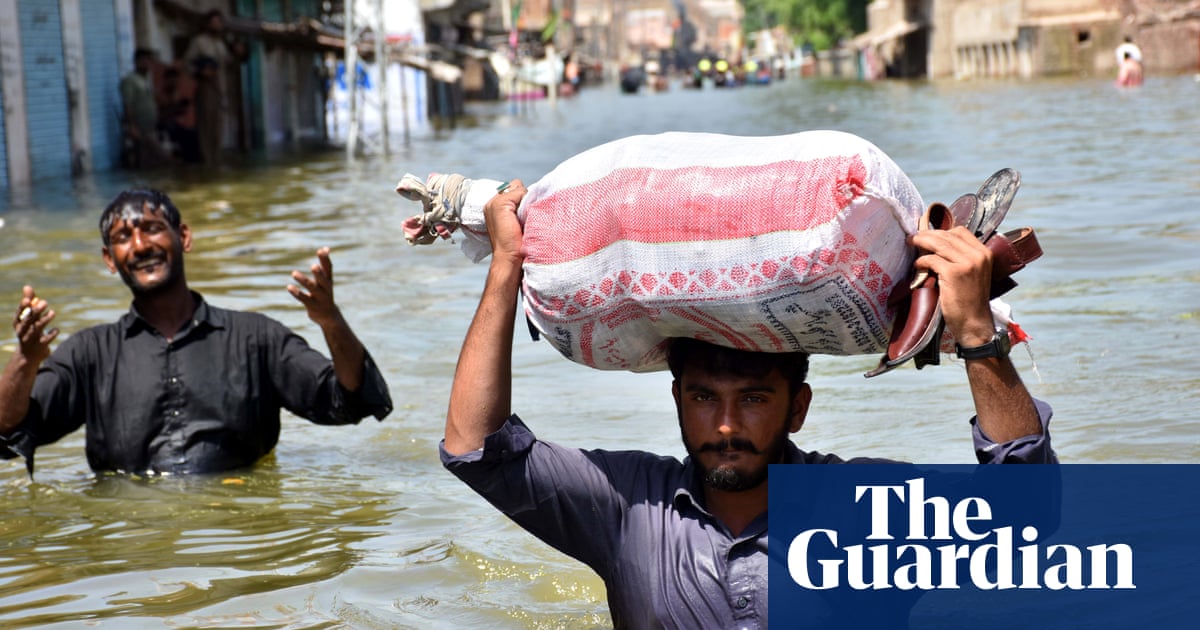
As the UN General Assembly begins its annual sittings in New York this week, there are several issues that deserve to take center stage, ranging from the ongoing conflict between Russia and Ukraine to the energy and food crisis that is partly linked to the war, along with the state of global education, healthcare and climate change.
The picture is dismal on many fronts, with fresh evidence of deterioration in the situation, at least for the developing nations and least-developed countries, notably in Africa, which seem to be bearing the brunt of the impact, notably in terms of hunger, health and climate disasters.
With forest fires, flash floods and heat waves still prevalent in many parts of the world, the critical situation is certain to outlast the discussions in New York. And, come November, a massive global jamboree to fight climate change will once again assemble, as every year. But this year, there is a difference, as the climate summit, known as COP27, comes to Africa, where it will be hosted in the Egyptian Red Sea riviera town of Sharm El-Sheikh.
The run-ups to many of the last several climate change meets have seen an environmental disaster on a global scale that has put the focus firmly on the fact that humankind has either run out of time or is about to do so in its battle against global warming and climate change. If the last two years saw unprecedented wildfires even in the tundra region of Siberia and Canada, as well sweltering temperatures up in the Arctic Circle, this year the theme is a drought that has gripped vast tracts of the Earth, from the western United States to eastern China, while impacting almost all of Europe, which is facing its worst drought in more than 500 years, leading to unprecedented curbs on water usage.
Northern Africa, including the host of COP27, Egypt, has also been fighting its own battle (equally losing it, just like the rest of the world) on water scarcity, particularly the available water in the River Nile flowing into Egypt due to rising demand in Ethiopia and Sudan. And, of course, other parts of Africa have also been experiencing the impacts of climate change, such as droughts, floods, rising seas and soil erosion.
There has been some excitement about the climate change meet returning to Africa, as some believe that, when the global environmental and climate change community gathers on the continent, they will get to see the situation first hand. Historically, Africa has had little to do with the factors leading to climate change — it is the lowest contributor to carbon dioxide emissions — but it is facing the brunt of its impact in all senses: Medically, economically, politically and socially.
In terms of responsibility for global warming, Africa has been a marginal player. In 2021, the continent produced 1.29 billion tons of carbon dioxide emissions, or just over 1 ton for each of its 1.22 billion people. In contrast, 375 million North Americans emitted 5.6 billion tons, or 14.9 tons per person. Africa is also the repository of some of the world’s largest carbon sinks — large forests that clean the air by absorbing millions of tons of carbon dioxide from the atmosphere.
Even the continent’s large-scale mining and oil extraction, especially off the coast, is conducted by global multinationals and its benefits are yet to be seen by the local population. But irrespective of the relatively small role Africa may have played in global warming, it is among the worst-impacted. Persistent droughts have led to a drop in harvests, leading to a rise in malnutrition and poverty.
It is not a lack of awareness that is preventing global leaders from taking the tough steps that are needed to curb carbon dioxide emissions.
Ranvir S. Nayar
As farmers abandon their lands and search for new areas to farm, conflict has arisen between various tribes, leading to the forced migration of millions of people, many of whom try to head for European shores as they do not see any future for themselves in Africa. All in all, the worst impacts of climate change in all its forms can be seen in full play here already.
Hence, the expectations are that, as Africa hosts COP27, the focus will be on the impact of climate change on the poorest continent and motivating the global community to take the long-pending measures to help mitigate the effects and make Africa more climate-proof.
But these expectations are founded on thin air. If hosting a jamboree for 15 days could do wonders for Africa’s climate change problems, then imagine what benefits should have been accrued for the protection of the African environment and ecology in the 50 years since the UN Environment Programme was created and headquartered in Nairobi, Kenya.
Unfortunately, from Nairobi to Nigeria and from Egypt to Eswatini, the African environment has been degraded extensively, seriously and perhaps even irretrievably — under the watch of the UNEP, if one can say so.
Reports state that rapid and unplanned urbanization in Africa has left it poorly equipped to deal with the impacts of climate change in the near future, including how it affects biodiversity, food security, health, water access and migration.
In today’s world, the global community does not need to go anywhere to be able to take action. It is not a lack of awareness that is preventing global leaders from taking the tough steps that are needed to curb carbon dioxide emissions. Rather, it is a serious lack of political will and the continuous desire to kick the can down the road for another leader to take the tough calls that are needed.
For more than 30 years, the world has known what needs to be done, to what extent and how urgently. The rich countries that have caused global warming by pumping hundreds of billions of tons of carbon dioxide into the atmosphere and that have pillaged natural resources from the world over have long since committed to cutting their own emissions and paying hundreds of billions of dollars to the poor countries, including almost all of Africa, to help them acquire technologies to curb their own emissions and to mitigate the effects of climate change.
Yet, on both the counts, the Western world has failed the rest of humanity as, despite all the implications of unchecked global warming being displayed across the planet, most countries are behind their targets for cutting emissions and are likely to miss the targets set for 2025 and 2030, the cutoff dates strongly recommended by the Intergovernmental Panel on Climate Change, a global body of scientists mandated by the UN to track climate change and suggest measures.
This year, with the Russia-Ukraine war leading to energy shortages, even “green and clean” Europe has moved back to relying more on coal-powered utilities. In the US, with the midterm elections looming, it is unlikely that one will see any of the several drastic cuts that the world’s biggest polluter in terms of per capita emissions desperately needs to make.
It is time for Africa to realize that, instead of looking to the outside world for help in dealing with climate change, it must chart its own course and protect its own environment the best it can, while keeping a close tab on the oil and mining sectors.
African countries need to expand their access to energy, support green development, begin growing climate-resilient crops that can withstand summer droughts, and integrate local inputs into policy discussion and implementation.
Perhaps it is also time to dust off the age-old idea of South-South cooperation, whereby developing countries come together and find their own localized solutions, instead of waiting eternally for Godot from the West.
Ranvir S. Nayar is managing editor of Media India Group.
Disclaimer: Views expressed by writers in this section are their own and do not necessarily reflect Arab News" point of view












